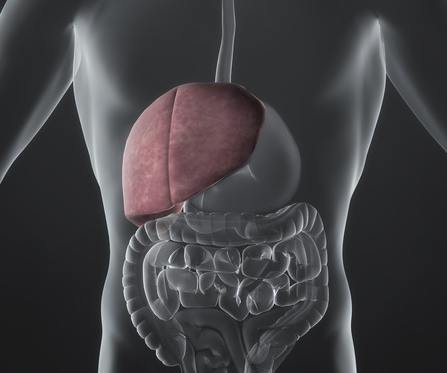[box]Diabetes in America and around the world is a serious health concern that only seems to be getting worse. A leading contributor to a wide variety of potentially fatal health complications including heart disease, stroke, blindness, nerve damage and kidney failure.[/box]
Types of Diabetes
Type 1 Diabetes
Usually diagnosed in young children, Type 1 Diabetes occurs far less frequently that Type 2 Diabetes. Type 1 Diabetes occurs when the pancreas is incapable of producing insulin, the hormone responsible for controlling glucose in the blood.
Only 5-10% of diabetics have Type 1 Diabetes.
Latent Autoimmune Diabetes in Adults (LADA)
Type 1 Diabetes also includes Latent Autoimmune Diabetes in Adults. A term used to define the small number of patients with apparent Type 2 Diabetes with immune-mediated loss of pancreatic beta cells.
Type 2 Diabetes
About 90-95% of all diabetic cases are Type 2. This is often diagnosed in adulthood but the number of childhood diagnosis’ have been increasing significantly. Type 2 Diabetes is characterized by the inability to produce insulin or the ability to produce enough insulin.
An unhealthy lifestyle and poor diet can contribute to the development of Type 2 Diabetes. The average North American diet and lifestyle is the reason Type 2 Diabetes is becoming more and more prevalent in our society.
Gestational Diabetes
A temporary form of Diabetes occurs during pregnancy. Only affecting about 2-4% of pregnant women. Gestational Diabetes leaves the mother and child at an increased risk of developing Diabetes.
Prediabetes
Prediabetes is characterized through high blood glucose levels, yet not high enough to be classified as Type 2 Diabetes. About half of individuals with Prediabetes will go on to develop Type 2 Diabetes.
35% of American Adults over the age of 20 have prediabetes, 50% of US seniors over the age of 65 have prediabetes.
Signs and Symptoms of Diabetes
Recognizing the signs and symptoms of Diabetes is the best way to identify it quickly and begin managing the disease promptly.
Symptoms of Diabetes
- Frequent Urination
- Unusually Thirsty
- Unexplained Weight Loss or Weight Gain
- Lethargy
- Blurred Vision
- Slow Healing Process
- Tingling and Numbness in Extremities
- Erectile Dysfunction
These are the most common symptoms of Diabetes, if you display any of the above symptoms you should contact your health care professional and get tested immediately. If you are over the age of 40 and display no symptoms it is still a good idea to get tested, as many people with Type 2 Diabetes display no symptoms.
Diabetic Symptoms in Children
- Unusual Thirst
- Frequent Urination
- Bed Wetting Relapse
- Lethargy
Whether you have a family history of diabetes or not, your child is at risk of developing this disease and it is important to identify the symptoms and contact your doctor immediately if any of the above symptoms occur.
Diabetes Treatments and Medications
Being diagnosed with Diabetes does not mean you cannot live a long, active and independent life. It simply requires a commitment to understanding the condition and managing it properly, many of the ways to help control diabetes are universally healthy practices that everyone should be doing in order to live a long healthy life.
Educate Yourself
Understanding Diabetes is the number one tool required to control the disease. Monitoring the condition and making informed dietary choices is integral to living a healthy life with Diabetes.
Nutrition
Eating healthy is vital to our overall health, regardless of any health conditions. When managing Diabetes it is also important to keep in mind how much you are eating and when you are eating. How much of what and when you eat all plays a role in your body’s blood glucose.
Physical Activity
Staying active is another universally important factor for optimal health. It can help diabetics maintain a healthy weight and lower blood glucose levels. Regular physical activity can promote healthy weight loss and reduce the stress put on your body from exogenous toxins.
Medication
Type 1 Diabetes is treated with with insulin, while Type 2 Diabetes is treated primarily through lifestyle changes, physical activity and healthy meal planning. Insulin is used to help treat Type 2 Diabetes as well,helping control blood glucose levels more effectively.
Blood Pressure
Regulating your blood pressure is extremely important if you have Diabetes. High blood pressure can lead to heart disease, eye problems, stroke and kidney disease. Maintaining a healthy blood pressure will help keep your Diabetes in check and prevent any further health complications associated with Diabetes.
Naturally Treat Diabetes
You can help treat and manage Diabetes naturally with many nutritional supplements. Many natural supplements can aid in regulating blood glucose levels, prevent glucose spikes or surges, manage weight, improve energy levels, regular blood pressure and promote a healthy insulin response.
Work with your doctor when pursuing natural treatment options, especially if you are on prescription medications. You and your doctor can institute a healthy lifestyle plan that includes meal planning and nutritional supplements.
Acetyl Glutathione and Diabetes

